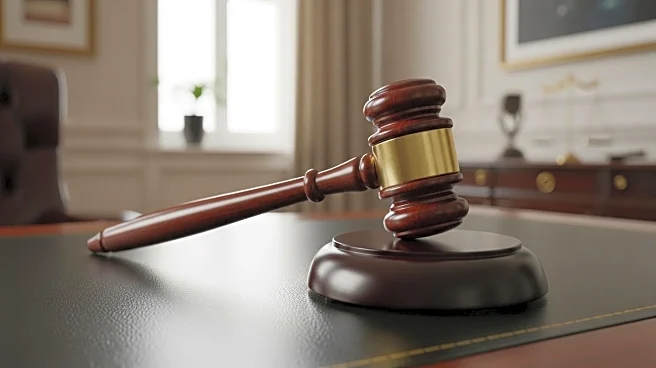What is the story about?
What's Happening?
An appeals court has temporarily blocked President Trump's attempt to remove Federal Reserve Governor Lisa Cook from her position. The court's decision allows Cook to remain in her role while her lawsuit against the Trump administration proceeds. This legal battle arises from allegations of mortgage fraud against Cook, which she denies. The court's ruling comes just before the Federal Reserve's two-day meeting to discuss interest rates, a critical event for economic policy. The decision was made by a divided court in Washington, with Judges J. Michelle Childs and Bradley Garcia voting to uphold Cook's position, while Judge Greg Katsas dissented. The court found that President Trump's attempt to dismiss Cook likely violated her due process rights.
Why It's Important?
This legal decision has significant implications for the independence of the Federal Reserve and the broader U.S. economy. By blocking the removal of Lisa Cook, the court has upheld the principle that due process must be followed in such dismissals, reinforcing the Fed's autonomy from political interference. The outcome of this case could influence future interactions between the White House and the Federal Reserve, particularly regarding appointments and dismissals. The decision also impacts the upcoming Federal Reserve meeting, where interest rate decisions are expected to be contentious. The presence of Cook, who is seen as a stabilizing figure, could affect the direction of monetary policy, which in turn influences economic conditions such as inflation and employment.
What's Next?
The Trump administration may consider appealing to the Supreme Court to overturn the appeals court's decision. Meanwhile, the Federal Reserve's meeting will proceed with Cook in attendance, potentially affecting the outcome of interest rate deliberations. The legal proceedings will continue, with further developments likely to draw attention from both political and economic stakeholders. The case could set a precedent for how future disputes between the executive branch and independent agencies are handled, particularly concerning the balance of power and the protection of due process rights.















